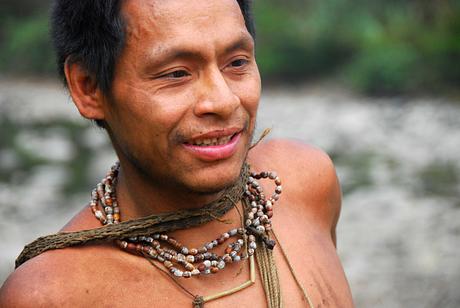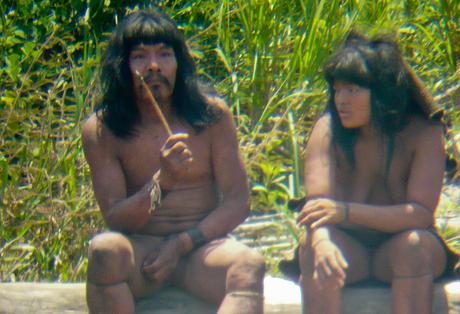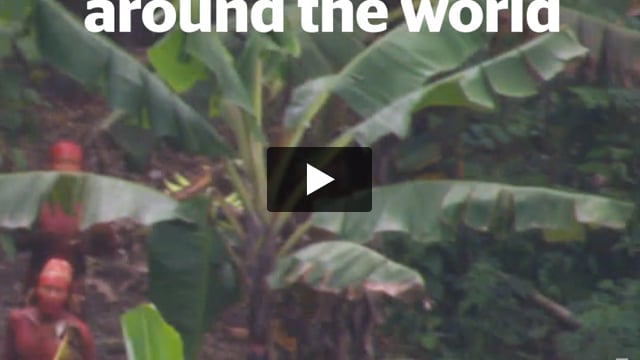Indians sue Peru over broken promise to isolated Indians
December 17, 2012

This page was last updated in 2012 and may contain language which is now outdated.
Peru’s top Indigenous organizations are taking on the government and powerful gas companies in an attempt to stop gas exploration that seriously threatens uncontacted Indians’ lives.
Amazon Indian organizations AIDESEP, FENAMAD, ORAU and COMARU plan to sue both the government and oil companies over proposals to expand the huge Camisea gas project into land inhabited by several uncontacted and isolated tribes.
A consortium of companies in charge of the block – which includes the US’s Hunt Oil, Spain’s Repsol and Argentine oil giant Pluspetrol – plans to cut hundreds of testing tracks through the forest, detonate thousands of explosive charges and drill exploratory wells in search of yet more gas.
75% of Camisea’s Block 88 lies inside the Nahua-Nanti Reserve, created to protect uncontacted and isolated Indians who are extremely vulnerable to disease and development projects on their land.
In 2003 a Supreme Decree was passed to protect the Indians living in the reserve from further exploration. It states unequivocally, ‘the granting of new rights involving the exploitation of natural resources (in the reserve) is prohibited.’
The Decree was one of several conditions set by the Inter-American Development Bank before it lent the government money to construct the Camisea project.
Survival has urged the Peruvian government to halt any extractive work taking place on land inhabited by uncontacted tribes, and abide by its previous promise not to carry out new exploration in the area.
In a statement released last week, the Indigenous organizations said that any further exploratory work would lead to the ‘extinction’ of the tribes living there.
‘The Peruvian government’s extractive policies prioritize money over the lives of Indigenous peoples… for this we have decided to sue the State and oil companies… to protect uncontacted tribes from the destruction of their environments and from becoming extinct,’ the statement read.




